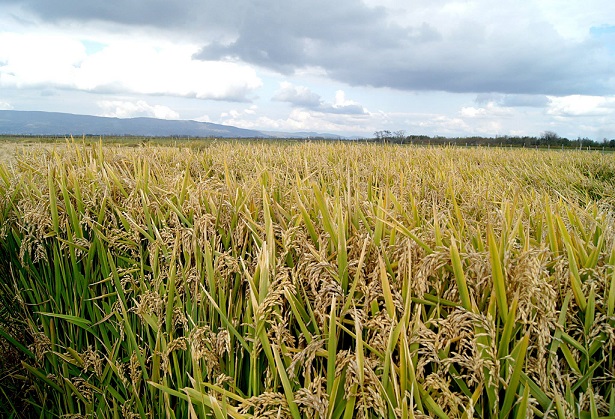Agriculture cooperatives – commercial harvesting ideas for farmers


Commercializing the small agricultural farms is one of the key issues of turning the sector into the profitable agribusiness. Therefore government of Georgia launched Agriculture Cooperatives Development Agency that is in charge of granting and terminating the status of individual cooperatives and monitoring of their activates. But agriculture industry insiders believe that linking farmers to the market would be a long difficult way.
Most small Georgian farm plots of land are for sustenance only, not enough for commercial production. Encouraging Georgian farmers to organize into viable producer groups like - Agriculture Cooperatives, on July 2013 the Law of Georgia on Agriculture Cooperatives was adopted.
According to the Head of the Agriculture Cooperatives Development Agency Giorgi Misheladze, the cooperatives will be voluntary participation of farmers, where all the members are equal. "It makes no difference whether a farmer enters a cooperative with one hectare of land or 100 hectares of land. They both make decisions in the same way one member, one voice, he said.
Moreover, to stipulate the process of cooperation of farmers, the government imposed the preferential taxes; also they enjoy the exemptions that are applied to agriculture activities.
- Cooperative assets used for agriculture production purposes are not taxed with the property tax;
- Grants for agriculture activities profits are not taxed.
- Profit tax based on annual upper limit of revenue is not imposed on agriculture cooperatives.
Misheladze believes that agriculture cooperatives will be more creditworthy in its efforts to get loans as well as the cost will be shared by several individuals.

"If it costs a farmer 900-1000 GEL to process one hectare of land, entering into a cooperative will reduce the cost by 5-10 percent, Misheladze noted.
The market links for potential agro cooperatives
The major constraints faced by small farms in responding to market driven commercialization opportunities in the country included small and fragmentation of land holdings, poor access to input and services including credit, availability and quality of infrastructure, market and price risks.

The recent figures confirm that the countrys agribusiness is dominated by household enterprises with relatively low incomes. A preliminary study by Geostat shows that between 2006 and 2012, the share of agricultural revenues of total household incomes has never exceeded 7%.
Moreover, nearly 50% of Georgias working-age population is employed in agriculture. In particular, the Georgian farming population is divided into two groups: the active farmers and the peasants that comprise the 70% of farmers that own up to 2 hectares of land for cultivation.
Local Economic Expert, Emzar Jgerenaia said that commercializing the smallholder agriculture is difficult but possible.
"There are finances, the law of agriculture cooperatives, the state support, but the potential farmers are not ready to use these advantages, Jgerenaia noted.
Mulling over the agro cooperatives, he mentioned that the small farmers should understand that without commitment for cooperation, management of community resources, gaining special skills and hardworking attitude, the problem of financing will always exist. "To unite in cooperatives is the advantage to gradually develop all these mentioned issues and even use the grant that will not be taxed with the profit, Jgerenaia said.
The Project Manager of Agriculture, Rural Development and Food Safety from the Delegation of the European Union Juan Echanove believes that the EU grant worth 40 million Euro for agriculture development, out of which 15 million Euro will be granted to small farmers businesses, will stimulate the creation of agro cooperatives.
The mission Director of CARE International in the Caucasus Thomas Reynolds, the world's largest international non-governmental humanitarian group that assists farmers access to agriculture inputs for several past years in Georgia said that it is a good opportunity for small farmers to come together and competing local as well as international markets. "Producer groups could provide some solutions to these challenges, Reynolds said.
Kolkhoz vs Agriculture Cooperative
The President of the Georgian Farmers Association Nino Zambakhidze fears that the bad experience with agricultural associations like Kolkhoz in Soviet time uses fears of villagers to go into the co-operation.
"What is in reality, co-operation is the process of voluntary joining of services and agro-machinery rather than mandatory joining process of resources that was in Kolkhozs case, said Zambakhidze.
She added that while joining the co-operative farmers have to understand that they stay owners of their own farm business and at the same time become the owners of co-operative together with other members with privilege of receiving the cheaper service and selling their products with bonus price.
Gela Khanishvili, a farmer from Ruisi, in the eastern Georgian village of Kareli, holds a limited company for six years and has an apple orchard on a 14 hectare plot. He has already heard about the co-operations and liked the idea of establishing the agro cooperates.
"The income or profit from small-scale with up to one or two hectare of land for cultivation is so small that it is not enough even for family consumption. I have one hectare plot area and together with my village farmers plan to organize cooperative and to agree to unite the plot areas and then sell the cultivated corn, Khanishvili said.
He believes that on the one hand, they will share the costs and the other hand they will receive product that will be enough for selling and receive the income.
Establishing process of the agriculture cooperatives to be launched from December 2013.
 Tweet
Tweet  Share
Share